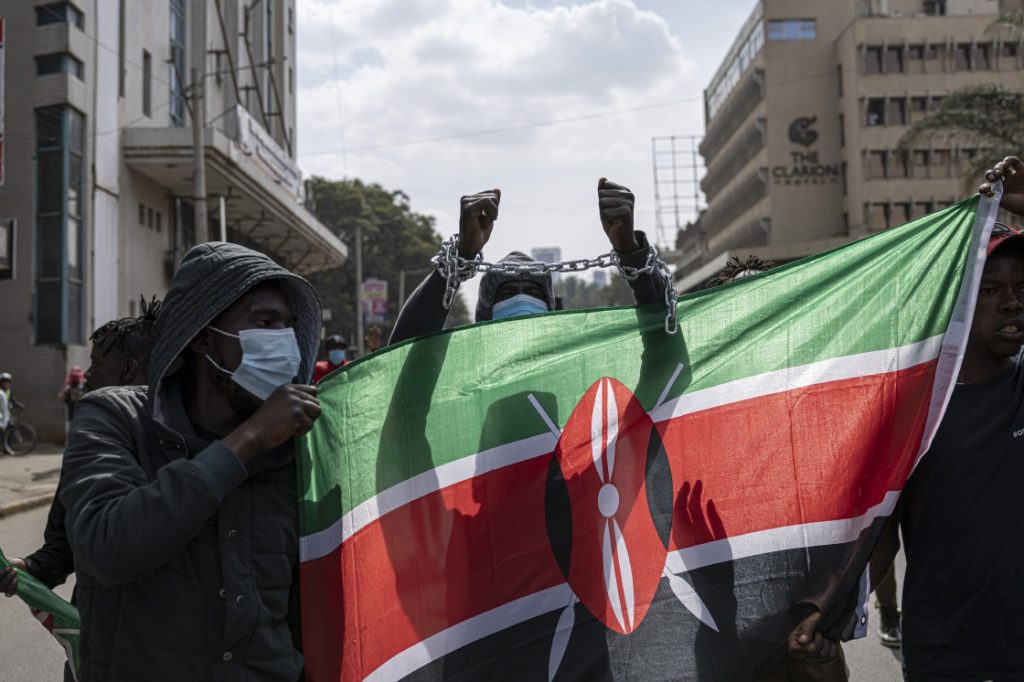A recent study shows that anti-government protests are severely disrupting healthcare services in various regions across Kenya.
Ambulances in some areas face delays or cannot operate due to these protests.
A healthcare worker in Mombasa reported that their hospital often closes during protests because Bamburi is a known violence hotspot.
During crises, access to healthcare becomes an issue, especially for women, children, and the elderly.
The Reproductive Health Network-Kenya (RHN-K) conducted a study this month, covering 214 healthcare facilities in 43 counties. The study found that 72% of these facilities reported a decrease in patients seeking services due to transport disruptions caused by protests.
Additionally, 69% of healthcare workers said security concerns and hospital closures disrupted their work schedules. About 28% of health facilities experienced vandalism, harassment by law enforcers, and had to attend to emergency casualties. The unrest also delayed treatment for patients with chronic conditions because people were hesitant to travel during times of unrest.
The most affected services were outpatient care, special clinics for chronic diseases, maternity and children clinics, family planning, and sexual reproductive health services.
The survey, which included 17 open-ended questions, assessed the impact of protests on sexual reproductive health (SRH) and rights. It revealed that 12% of facilities noticed changes in SRH services, including increased demand for condoms and self-injectable contraception and a rise in sexual gender-based violence cases.
The findings also showed that 25% of facilities experienced shortages of condoms, emergency pills, and self-injectables. While 60% of the facilities reported their working hours were affected, 40% said they were not impacted by the protests.
A healthcare worker mentioned that during demonstrations on Tuesdays and Thursdays starting at 11 am, they do not receive any clients, even those with appointments, because people avoid town. Another healthcare worker noted that their clinic is located on a main road frequently barricaded by protesters, making access impossible. Teargas is often thrown inside the hospital, forcing them to close for safety reasons.
Ms. Nelly Munyasia, the Executive Director of RHN-K, said the study was prompted by concerns from healthcare providers about the impact of protests.
“We were informed by our healthcare providers about the situation on the ground, and we wanted to understand the impact of the protest.
“We were thinking of pregnant mothers who were due for their clinic visits on the said days, family planning refills, and many other people who are not getting healthcare services.
“What is the impact of not getting services when they need them? How do we ensure, as a country, that we do not start recording mortalities as a result of the political protests?” She said.
Around 30% of health facilities reported destruction and vandalism, while 70% said they had not experienced any threats during the unrest. Some demonstrators entered health facilities while fleeing, leading to police firing teargas and protesters stoning the facilities.
The survey recommends law enforcement agencies provide security to private and public facilities and raise public awareness about essential services that should not be disrupted.
Prof. Shem Otoi Sam, an expert in infectious disease modelling, expressed concern for critically ill patients.
“My concern is for patients with chronic diseases. When they miss their clinic appointments, the likelihood of disease progression is very high.
“The moment they miss their clinic days, it means severe complications, requiring more intensive and expensive medical interventions later on.
“We need to ensure that hospitals operate normally, with no one, including mothers and children, missing their prenatal care and vaccinations. Let’s make sure that we, as a country, do not get ourselves into bigger problems,” he said.

